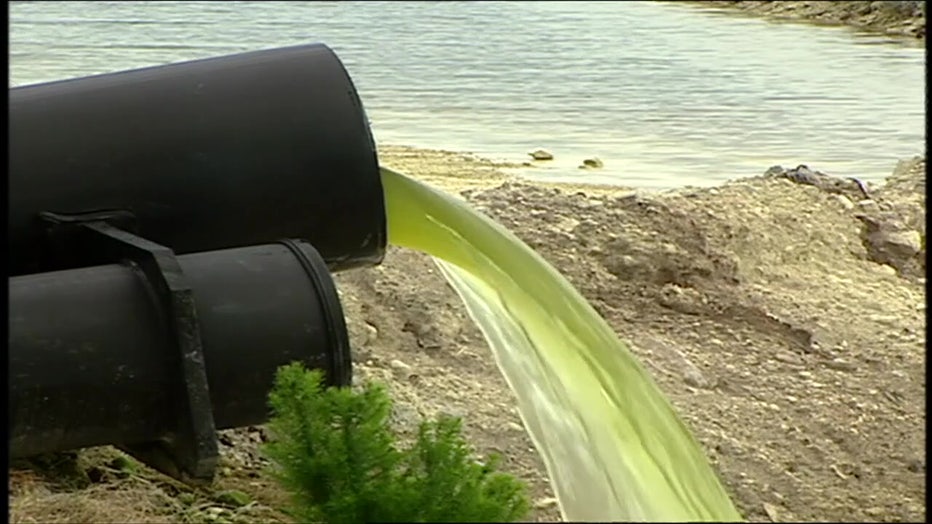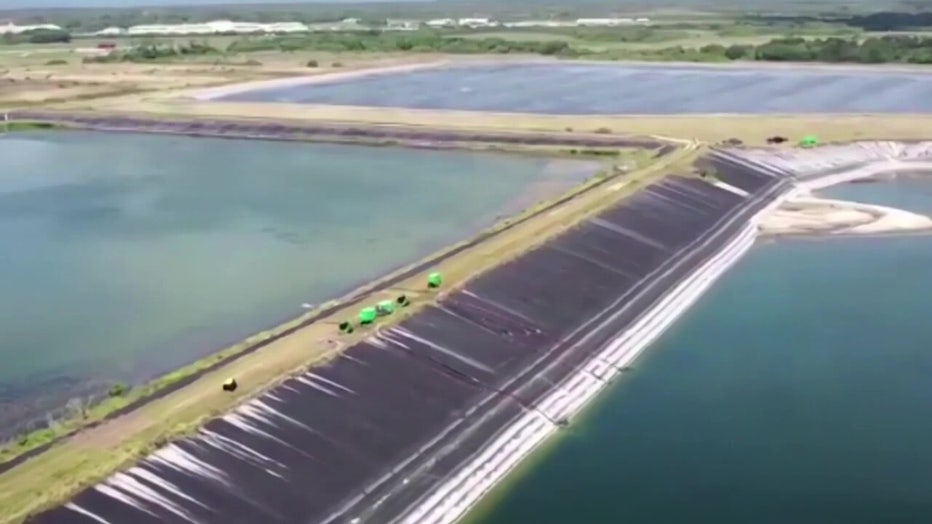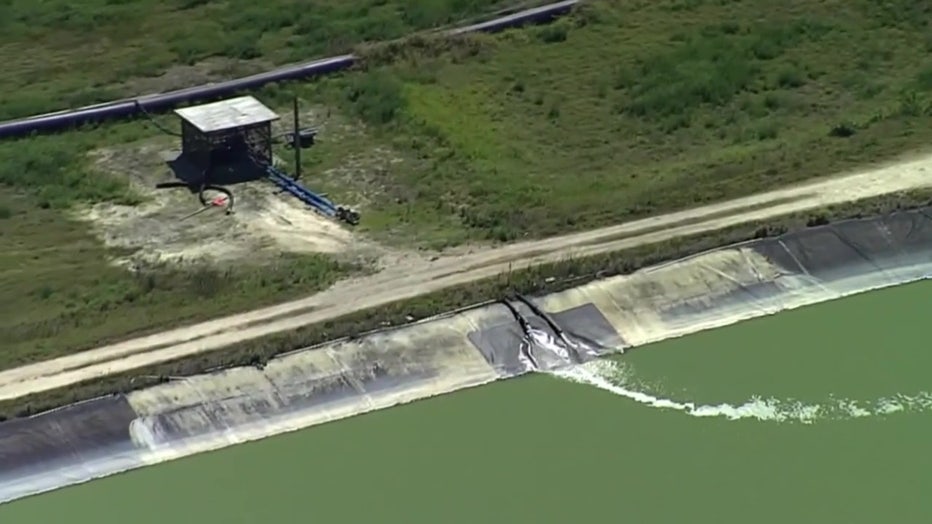Crews begin pumping millions of gallons of treated wastewater from Piney Point into underground well

New step in closing the Piney Point site
On Tuesday in Manatee County, workers started ?injecting water from the Piney Point phosphate plant into an underground well.?
PALMETTO, Fla. - On Tuesday in Manatee County, workers started injecting water from the Piney Point phosphate plant into an underground well.
"I’m numb in some sense, super relieved in others, but I cannot express enough what a huge accomplishment this is and a win for the community and environment," said Jeff Barath, a site manager who worked at Piney Point for nearly two decades.
He said it will prevent any of the water from going out into Tampa Bay, because there's still nutrient concentration in the water. Given the temperatures in Tampa Bay and the lyngbya and red tide, Barath said, "we don’t want to be adding anything that will be exacerbating that problem."
Studies have shown that the wastewater fed the red tide algae bloom that's caused problems for local waterways and the Gulf.
It also sparked a major lawsuit by several local environmental groups, alleging that the Florida Department of Environmental Protection and other groups long mishandled the site.

Water flowing from Piney Point.
Justin Tramble, the executive director of the Tampa Bay Water Keeper, says research is currently being done to see if there are long-lasting impacts from the Piney Point disaster.
READ: DEP signs off on plan to shut down Piney Point for good by 2024
"I think it’s important to note that we’re only two years removed from one of the worst environmental disasters that Tampa Bay has ever seen, probably the state has seen with the Piney Point disaster," Tramble said.

Piney Point reservoirs.
Treated water from the former phosphate plant’s gypsum stacks is now being injected into a deep well fortified by five separate casings. It’ll go down more than 3,000 feet past the Florida Aquifer.
The well was completed by Fort Myers-based Youngquist Brothers, Inc., working with consultants ASRus of Tampa and Manatee County Utilities staff.
The well will be used to safely dispose of Piney Point's process water into a confined saltwater aquifer more than a half mile below the surface. That process water — which will be drained from the reservoirs atop nearby phosphogypsum stacks — will be pre-treated before injection. Work on the pre-treatment facility has been underway since earlier this year.
RELATED: Piney Point wastewater leak: A history of the former phosphate plant site
"This water will go down a UIC well and from what I’ve been told, it will take 75,000 years to come through natural filtration to come back to the surface," said Barath.

Aerial view of Piney Point.
In March of 2021, more than 200 million gallons of untreated water was pumped into Tampa Bay, as a leak threatened the integrity of the stack.
Herbert Donica has worked on a plan since being appointed as the court receiver months later.
"This is a major part of giving the community confidence that we are moving forward with a plan to close out the stack system," he told FOX 13.
The process depends on the weather, because the technology crews are using what will get the water level down until the rainy season.
"It is water that has been cleaned up through a chemical process, eight times over," said Donica. "We have dropped out over 99% of the nitrogen and phosphorous out of that body of water."
The permit allows for up to one million gallons of treated water a day to be injected underground. Work is being done to close out every gypsum stack at the site and put Piney Point in the past.
Officials say about 50 million gallons have already been siphoned out of the stack and treated to remove pollutants. It could take upwards of three years before the site is officially shut down.
"We will get that water level down in that pond to where it’s safe for the community, there will be no more side bursts of the wall. That’s important that way we can concentrate on our closure efforts and to close out piney point for good," said Donica.

